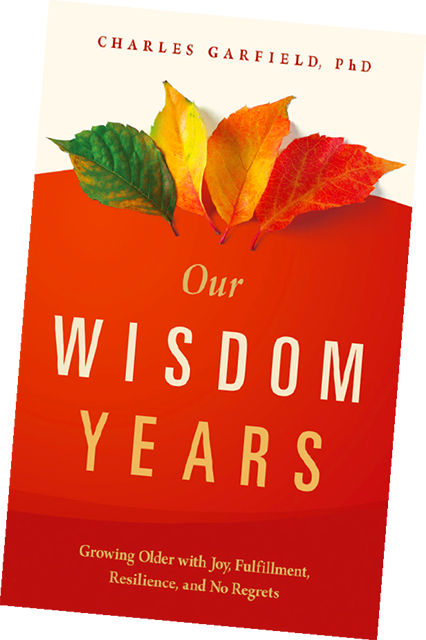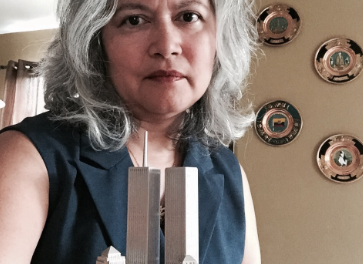
why does some of the most profound growth of our lives happen after age sixty?
After age 60, there begins a new stage of life after adulthood that I call later life. This new stage is as important and substantial as the transition from adolescence to adulthood and has as much potential for growth. Fulfillment now matters more than success. Although there is an increasing awareness of a limited life span after 60, there is also the reality that the fastest-growing segment of the population is people over 100. Therefore, there may be as long as 40 years of life in this new stage of our journey where the two most vital growth lessons, as we review our lives, are: who do we truly love and who truly loves us? And what work have we done that has made a positive difference in the lives of others? We are more conscious of our mortality after 60, and hence, of the meaning that our lives have had.
why is our model of what it means to grow older incomplete?
There are two models of aging that are most apparent and each of the two is incomplete. First is what I call the “decline and debilitation model” which says that aging is a predominantly negative experience characterize by bodily disintegration and cognitive impairment. Although there is certainly a reduction in bodily efficiency and at times mental prowess, many people in later life are still sharp and capable.
Second is the notion that “nothing has changed. You’re as good as you ever were.” This model denies the actual physical and mental changes that occur during later life.
What’s missing is the potential that exists when we have as many as 40 years more to live during a new stage of development called later life. When we base our assumptions about growing older on the basics of adulthood, we try to continue getting gratification from success and achievement rather than our higher values such as gratitude, love, compassion, service, beauty and justice. This violates the essence of what later life’s potential is about.
why is the paradigm of “successful/active aging” problematic in later life?
Successful/active aging is often problematic in later life because it says that achievement and success are the bottom lines for contentment. Again, this is based on the assumption that later life is merely an extension of adulthood and ignores the new stage of life that begins around age 60. During later life, contentment is no longer based on “climbing a ladder” to achieve ever more challenging goals. Rather, it is based on a life that expresses our higher values, communicates our gratitude for what we have been given and for the journey we have lived, and forgives others and ourselves for whatever transgressions we have experienced. The “successful/active aging” paradigm is based on “doing” while the later life paradigm of aging is based on answering the question: Who is my soul now calling me to be?
how can we retrieve forgotten or neglected parts of ourselves?
First, ask yourself the question: what forgotten or neglected parts of yourself would leave you most content, were you to actualize them? Second, describe your life, were you to actualize these neglected and ignored parts of yourself.
Example: my parents met in an acting class after high school where my father was the leading man in a play. He loved acting more than anything but during the Depression, there were few ways to earn a living as an actor. For 40 years, he worked as a salesman but never forgot his dream of being an actor. Within weeks after retiring, he joined a local acting troupe and swiftly became the leading man in a performance that ran at various senior centers in his local area and he was, in his own words, “Happier than I’ve ever been in my life.”
how can we be grateful for a life we might regret?
The two keys to alleviating regret are self-compassion and self-forgiveness. Write a forgiveness letter to yourself that includes the observation that you did the best you could given who you were and what you knew at the time. Also, write in the letter what you’ve learned from what you regret that you’ll never again do. Allow yourself to feel the gratitude that comes from letting go of self-recrimination and from learning to be a better person as you learn the lessons that can come from regret.
how can we leave a legacy that we are proud of?
First, ask yourself: what am I leaving behind for my children, grandchildren, other people, and the world around me that I am most proud of.
Second, what “legacy project” might I develop and/or commit to in later life that will serve as an expression of my higher values – beauty, compassion, justice, service, etc. This legacy project can be as simple as writing a letter to your grandchildren about your life and what values were most important to you.
It is important to remember that a “legacy project” doesn’t need to be something as grand as Shanti Project. It can be as simple, but as generous of spirit, as a letter to your grandchildren that tells them what higher values were most important to you during the long arc of your life. Or what simple acts of kindness made a difference in the life of someone struggling to get through the day, the week, or the year, i.e. the seismic consequences of your small acts of kindness.
Publicity Contact: Kelli Daniel, [email protected]





